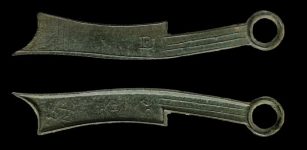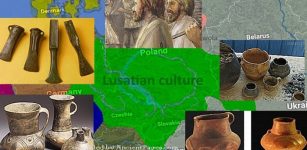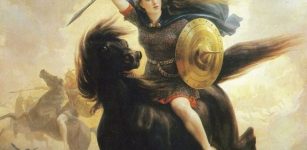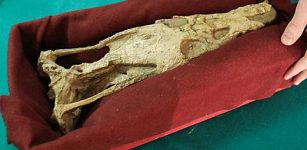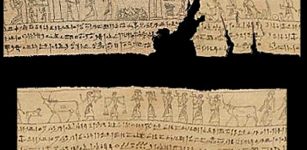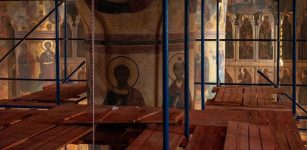Controversial Statue Of Anglo-Norman Knight William Marshal In Pembroke Faces Criticism
Jan Bartek - AncientPages.com - After three years of work a statue of famous Anglo-Norman knight William Marshal was unveiled on May 7, in Pembroke, Wales, but not everyone is happy about its presence in the town.
William Marshal is considered by many, one of the greatest English knights and magnates of the Middle Ages. As previously explained on AncientPages.com, "Marshal was knighted, probably by his uncle, in 1167 (1166) on campaign in Upper Normandy and at the time of the conflict between Henry II of England and Louis VII of France. He was offered many opportunities as a warrior and a brave and successful participant in tournaments.
William Marshal never broke with his word and his oath of fealty.
Head of the effigy of William Marshal, 1st Earl of Pembroke, in Temple Church, London. Credit: Kjetilbjørnsrud - CC BY-SA 3.0
An important turning point of his career took place during an ambush in 1168, when Patrick, Earl of Salisbury and Eleanor of Aquitaine (1122-1204), a Queen consort of France and England and mother of Richard I (the Lion-Heart) were returning from a pilgrimage.
The earl was killed and William was injured but helped Eleanor to escape. He was later ransomed by Eleanor, who had heard of his bravery.
By the 1170s William had become a popular but also very professional participant of tournaments, which gave him almost legendary wealth. He was a strong man, brave, and his skills with a lance, mace, and sword along with horsemanship largely contributed to his successes."
There is no doubt William Marshal was an important person in the history of England and he served five English kings - Henry II, his sons the "Young King" Henry, Richard I, and John, and finally John's son Henry III.
Knighted in 1166, he became the de facto Earl of Pembroke through his marriage to Isabel de Clare, though the title of Earl would not be officially granted until 1199 during the second creation of the Pembroke Earldom.
In 1216, he was appointed protector for the nine-year-old Henry III, and regent of the kingdom.
Yet, as reported by the Western Telegraph, "for some, however, he is seen as 'an oppressor' of the native Welsh people. The statue of William Marshal in Pembroke has caused been seen as a controversial action by some people.
One person, who did not want to be named, wrote to the Western Telegraph: “Marshal’s forces committed atrocities (and he) was involved in the eventual conquest of, and subjugation of Wales and the Welsh people.
“Many people will surely question whether it is appropriate to honor this individual, when today, he may well be accused of being a war criminal.”
The statue of William Marshal in Pembroke. Credit: The Western Telegraph
Jason Evans posted on Twitter: “Why are we allowing this monstrosity of a statue to be erected?
“Where else in the world would a statue to an oppressor be accepted?”
A spokesperson from Pembroke and Monkton Local History Society said: “We’ve ran a hugely positive campaign over the last three years, and now we’ve had all this (negativity) in the past few weeks, and it’s depressing actually.
“We’re lucky we’ve got a connection to William Marshal. He is such an admirable character. He saved Magna Carta and brought peace to this country.
“After King John died, William was overwhelmingly asked to become Regent because he was so well respected and such a great statesman, and at age 70 he led the Royal Army up to Lincoln and defeated the French invasion.
“If it wasn’t for him, this country would have gone under the French.
“He was such a great character, and to have all this rubbish; I never thought there would be any controversy about him.”





